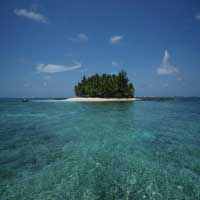another article without an active link when i post
Post# of 8059

RPT-UPDATE 2-Australian iron ore trade faces labour unrest as boom fades
Mon May 12, 2014 11:19pm BST
(Repeats story published late Monday; no change to text)
* Tugboat workers back strike plan at huge iron ore port
* Strike would cripple half of Australia's iron ore exports
* Iron ore is Australia's top export earner
* Coal sector also faces dispute
By Sonali Paul
MELBOURNE, May 12 (Reuters) - Tugboat workers at Australia's main iron ore port threaten to hold a strike that could halt a quarter of the world's iron ore exports and cost miners $100 million a day, just as the industry battles to slash costs and get more out of its workers.
The dispute comes as resource firms say Australia has become far more expensive than other locations as a now maturing project construction boom, driven by Chinese demand, led to fat pay packets and lavish conditions.
In some outback mines, for example, workers are flown back and forth from resort-like housing, while cooks and laundry hands at some gas projects can earn as much as A$350,000 ($327,200) year.
Tugboat deckhands at Port Hedland, used by Australia's second- and third-largest iron ore producers, on Monday approved a plan to go on strike for one, two or seven days if they are unable to resolve a dispute over vacation and pay.
A disruption in shipments from BHP Billiton and Fortescue Metals Group may help prop up iron ore prices that have lost 14 percent from April highs, although bigger rivals Rio Tinto and Brazil's Vale could fill any short-term gap in a well supplied market.
The Maritime Union of Australia (MUA), representing deckhands, said it remained in talks with tugboat operator Teekay Shipping Australia to resolve the dispute, and no decision had been made yet on whether to strike.
Deckhands, who work four-weeks-on and four-weeks-off for A$135,000 a year, want four weeks of annual leave on top of that. They say that is less than the industry standard of six weeks annual leave for workers who are on a similar roster.
"We think this is very reasonable, given our members work 12 hours a day for 28 days straight in very tough conditions," said Will Tracey, Assistant Western Australia secretary of the MUA.
They are also seeking pay rates of 70 percent of the A$220,000 that tugboat masters earn, which they say would match the gap between deckhands and masters at other Australian ports.
ECONOMY HOSTAGE TO DISPUTE
Iron ore is Australia's biggest export earner, with the value of exports forecast to surge 35 percent to A$76.8 billion in the year to June 2014 from a year earlier, according to the Bureau of Resources and Energy Economics.
"Given the current wages and conditions, we think it would be irresponsible for the MUA to take industrial action that would put a stop to one of Australia's most critical national exports," a BHP Billiton spokeswoman said.
BHP, which holds the licence for the tugboats at Port Hedland, estimated a strike would cost suppliers who use the port around $100 million a day, based on exports running at around 1.1 million tonnes a day at a price of $103 a tonne.
If the workers decide to go on strike, they must do so within 30 days, and must give Teekay three days' notice ahead of any strike. Further mediation is due on May 20.
Masters and engineers who also work on the tugboats are due to hold similar votes, with the results due on May 30 and June 10, which could escalate potential strike action.
BHP said it remained hopeful that Teekay would be able to reach an agreement with the maritime unions. Teekay declined to comment, pointing to further mediation.
Australia's biggest iron ore producer, Rio Tinto, would not be hit by a strike at Port Hedland as it does not use the port.
But one analyst, who declined to be named, said the huge importance of iron ore exports to the economy meant the government could intervene in the event of industrial action.
Iron ore futures in Singapore gained almost 1 percent after news of the union vote. Dalian iron ore futures rose 0.7 percent.
"It depends on how long the strike lasts. If it lasts for a week or even longer this will provide a strong support to iron ore prices," said an iron ore trader in Shanghai.
Spot iron ore .IO62-CNI=SI stood at $102.70 a tonne on Friday, the lowest since September 2012.
COAL SECTOR
The MUA vote came on the same day as Australia's top coal transporter, Aurizon Holdings Ltd, said it was seeking to terminate 14 union agreements, after saying it had been pressing for more than a year to get workers to be more flexible over rostering, remove terms that block forced redundancies and eliminate free rail travel.
"It's not only about money, it's about being flexible," said Aurizon spokesman Mark Hairsine.
The dispute with Aurizon could eventually lead to strikes affecting coal trains, hitting Australia's second-biggest export earner. ($1 = 1.0697 Australian Dollars) (Additional reporting by Manolo Serapio in SINGAPORE; Editing by Ed Davies)
 (0)
(0) (0)
(0)